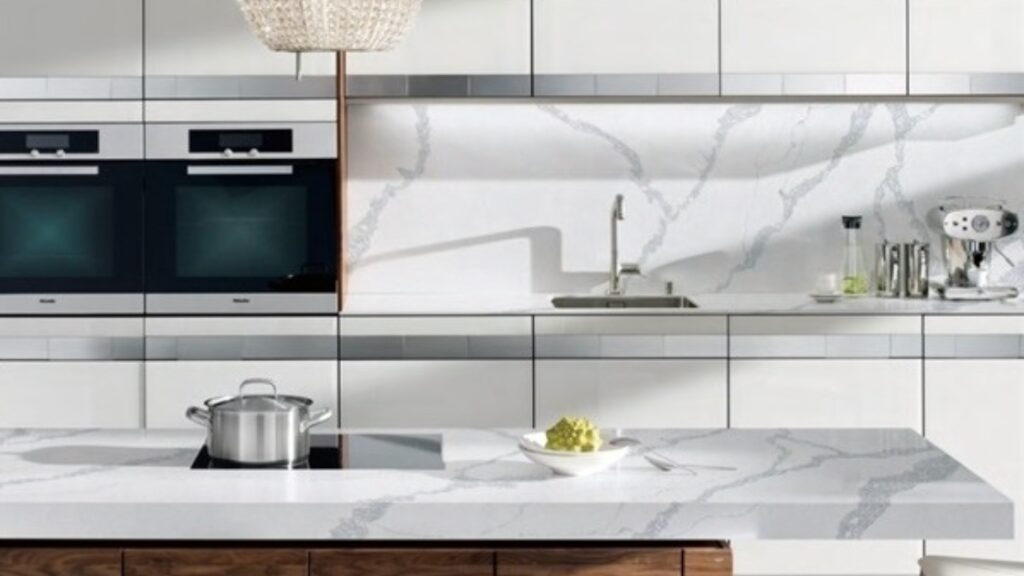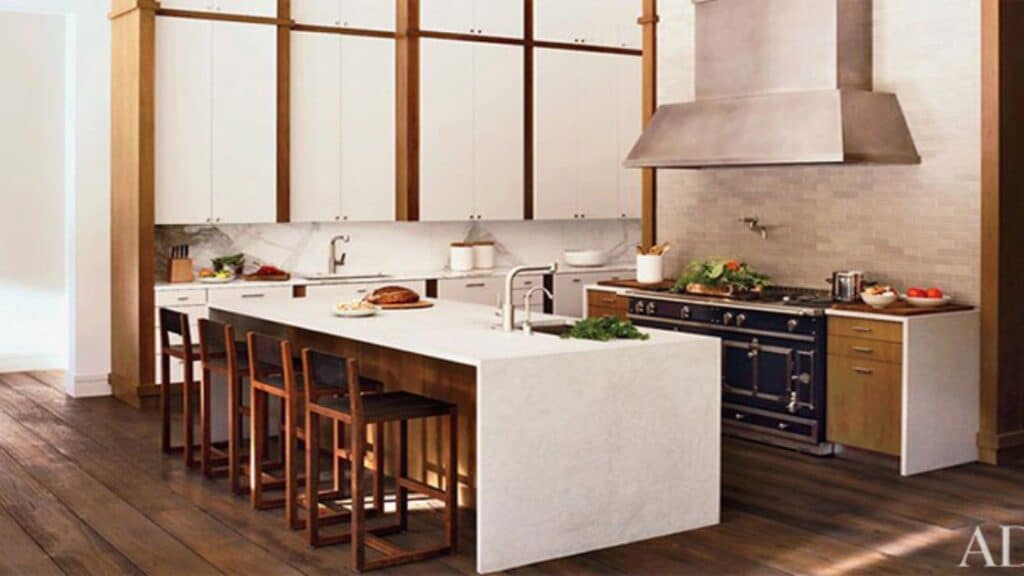Outline:
I. Quartzite vs Quartz?
II. Main Differences Between Quartzite vs Quartz
III. Pros and Cons of Quartzite vs Quartz
IV. Choosing the Right Journey: Kitchen Bath Direct
When selecting countertop materials, it’s important to have a general understanding of the pros and cons of quartzite vs quartz. Quartzite and quartz have both become popular choices, but it’s important to understand the difference between the two so that you can make the best selection for your space. In this article, we’ll take a deeper look into quartzite vs quartz to help you make the right decision.

What Is Quartzite?
Quartzite is a natural stone found in the form of rock. It’s composed mainly of sandstone and quartz, which makes it incredibly durable and reliable for various uses. It’s usually mined from mountain ranges and other sources such as deposits from ancient rivers or underground waves, which makes it a unique and natural find. Quartzite fabrication can be found in a wide range of colors, so it can naturally match most any home or kitchen decor.
What Is Quartz?
Quartz is an engineered stone composed of roughly 93 percent crushed quartz and 7 percent polymer resins that are added for binding purposes. While it can be found in a wide range of colors and patterns, it’s mostly seen in neutral tones such as whites, creams, and grays. Quartz is usually chosen for its stain, scratch, and crack-resistance, making it a highly durable option.
Main Differences Between Quartzite vs Quartz
One of the main differences between quartzite and quartz countertops has to do with their ability to resist stains and other blemishes. Quartzite is known for its ability to withstand various types of stains, including those from acidic foods or liquids, while quartz is not as stellar in this area. That said, quartz is often chosen due to its durability as it won’t get cracked or scratched easily, while quartzite will not fare as well.
Another difference between quartzite vs quartz lies in their appearance. Quartzite tends to have a more natural stone look, which can complement a traditional aesthetic while quartz is more contemporary and can even mimic the look of other surfaces such as marble or granite.

Pros and Cons of Quartzite vs Quartz
As quartzite is made up of natural stone, it’s highly durable and resistant to various forms of damage such as cracks and scratches. It also does not require much maintenance and is not prone to staining or other blemishes. That said, quartzite is prone to etching and can potentially be damaged by excessive heat.
Pros and Cons of Quartz
Quartz is generally more resistant to staining and etching than quartzite, making it a great choice if you’re looking for something that is easy to maintain. It’s also highly resistant to chipping and other forms of damage, making it an ideal option for those looking for a surface that won’t need to be replaced over time. That said, quartz is not as natural as quartzite and some may be unhappy with its non-natural look.
Choosing the Right Journey: Kitchen Bath Direct
When it comes to selecting quartzite or quartz countertops, it’s important to weigh the pros and cons of each option and determine which one is right for your space. Kitchen Bath Direct offers a wide selection of both quartzite and quartz countertops, so no matter which option you decide is right for you, they’ve got it! Their selection of countertops is sure to have exactly what you’re looking for. Plus, they offer the best prices for the highest quality materials, so you can’t go wrong with Kitchen Bath Direct. Check them out today at kitchenbathdirect.com to get started on the right journey for your countertops.

